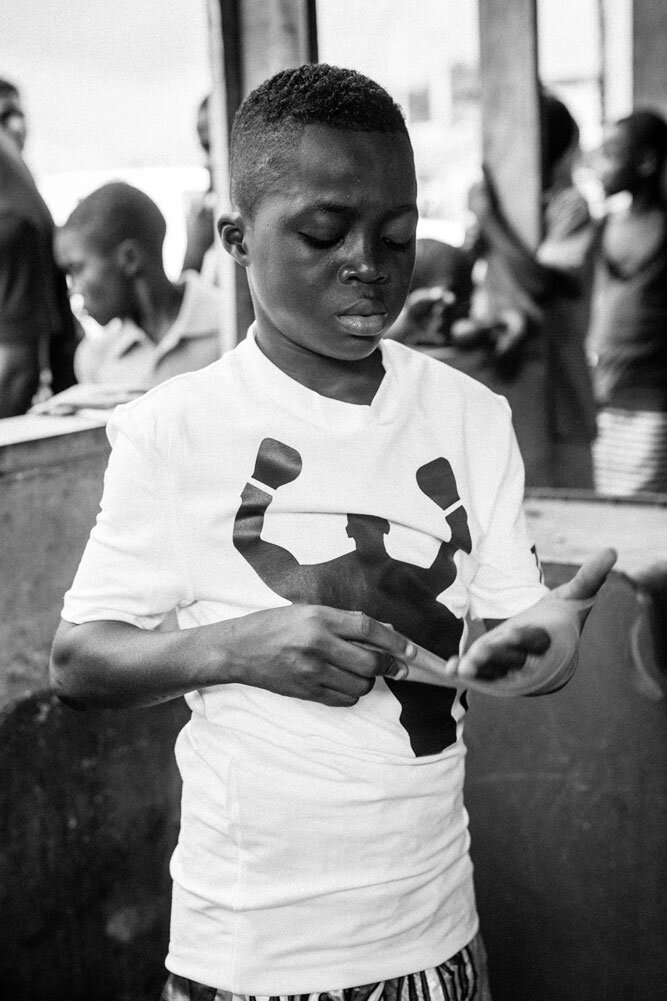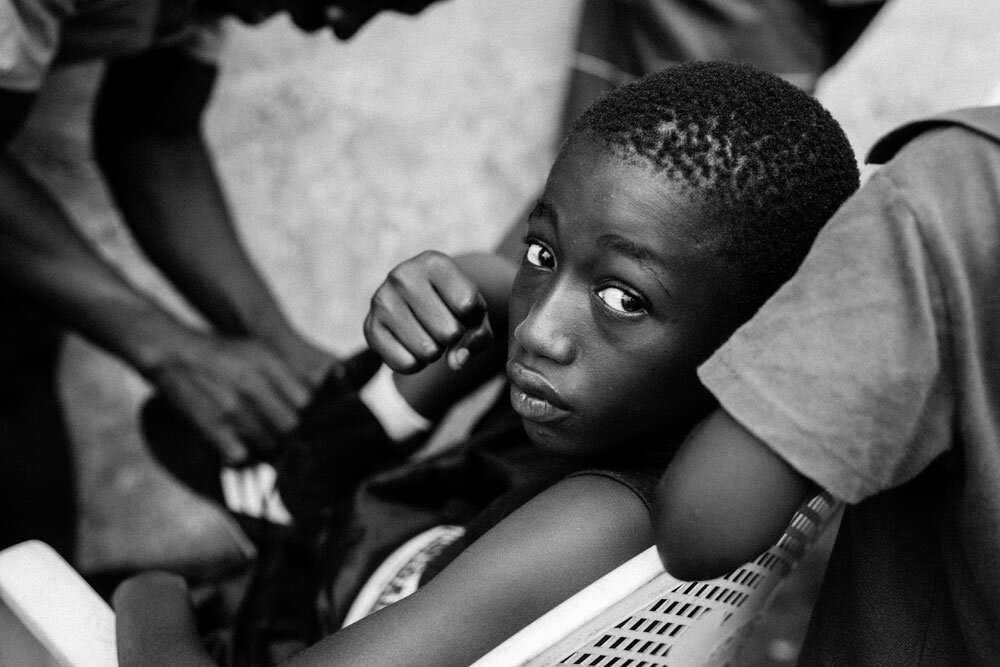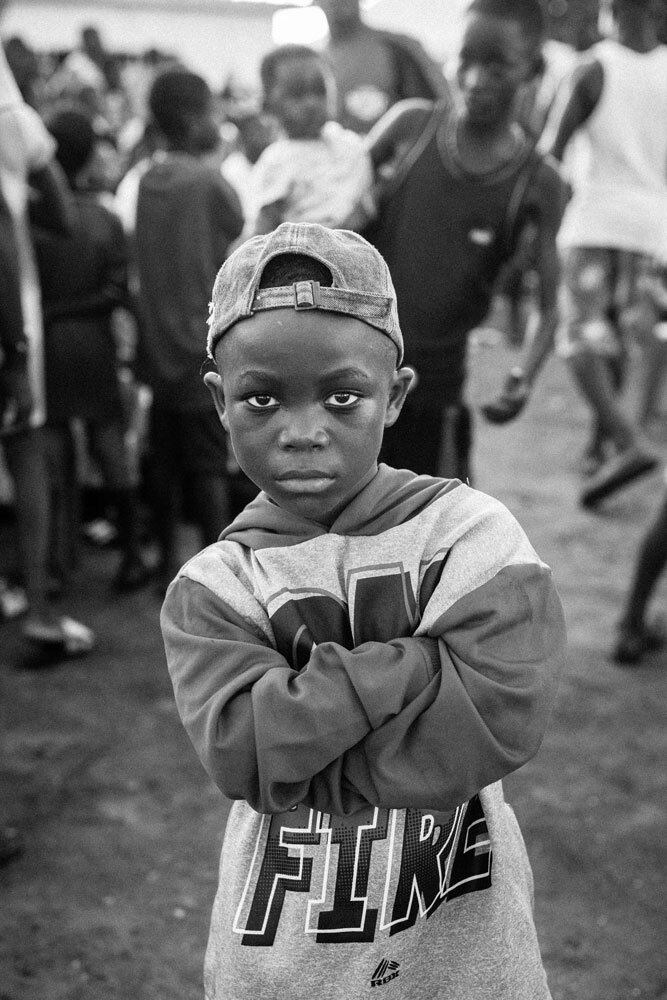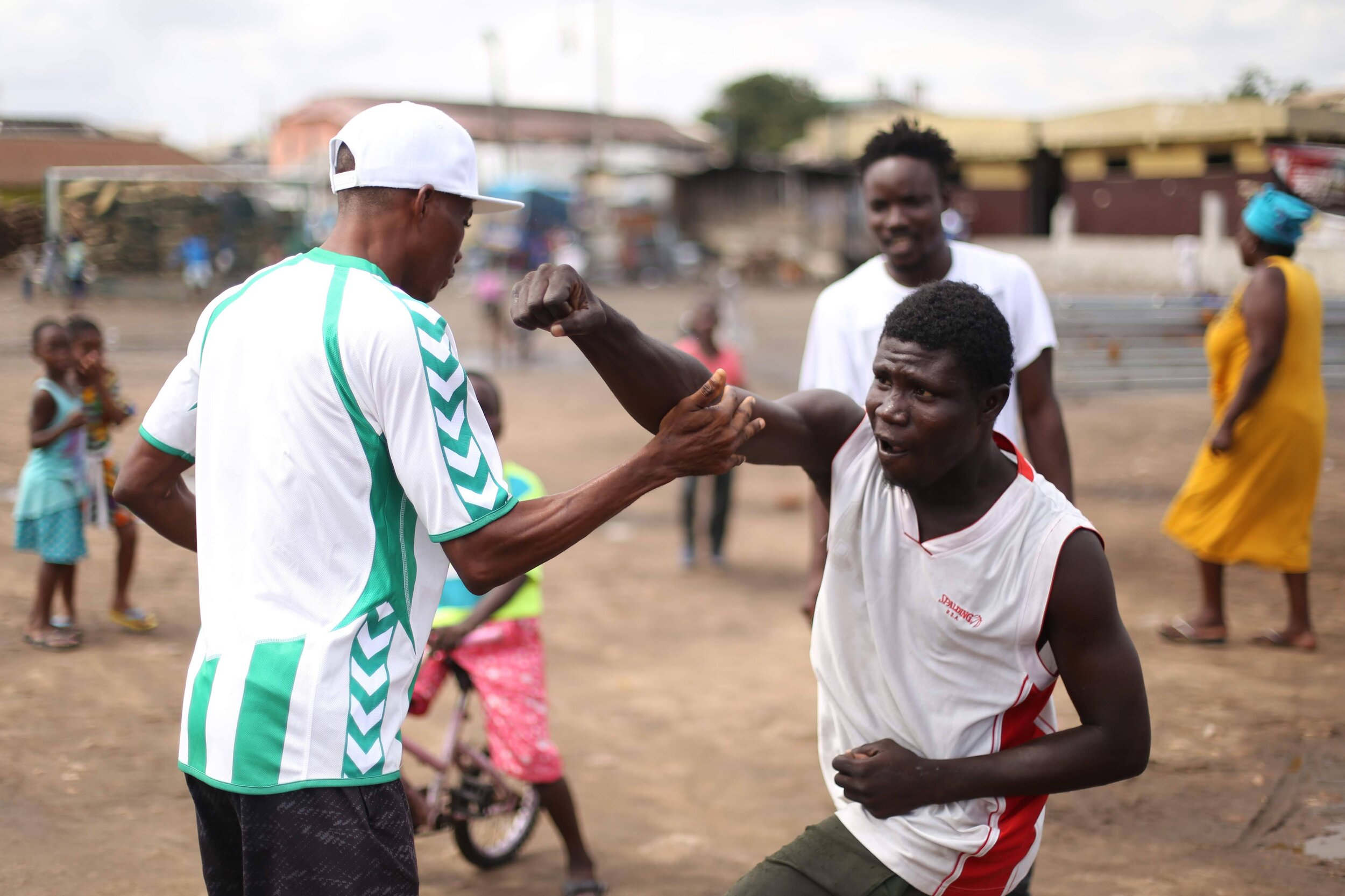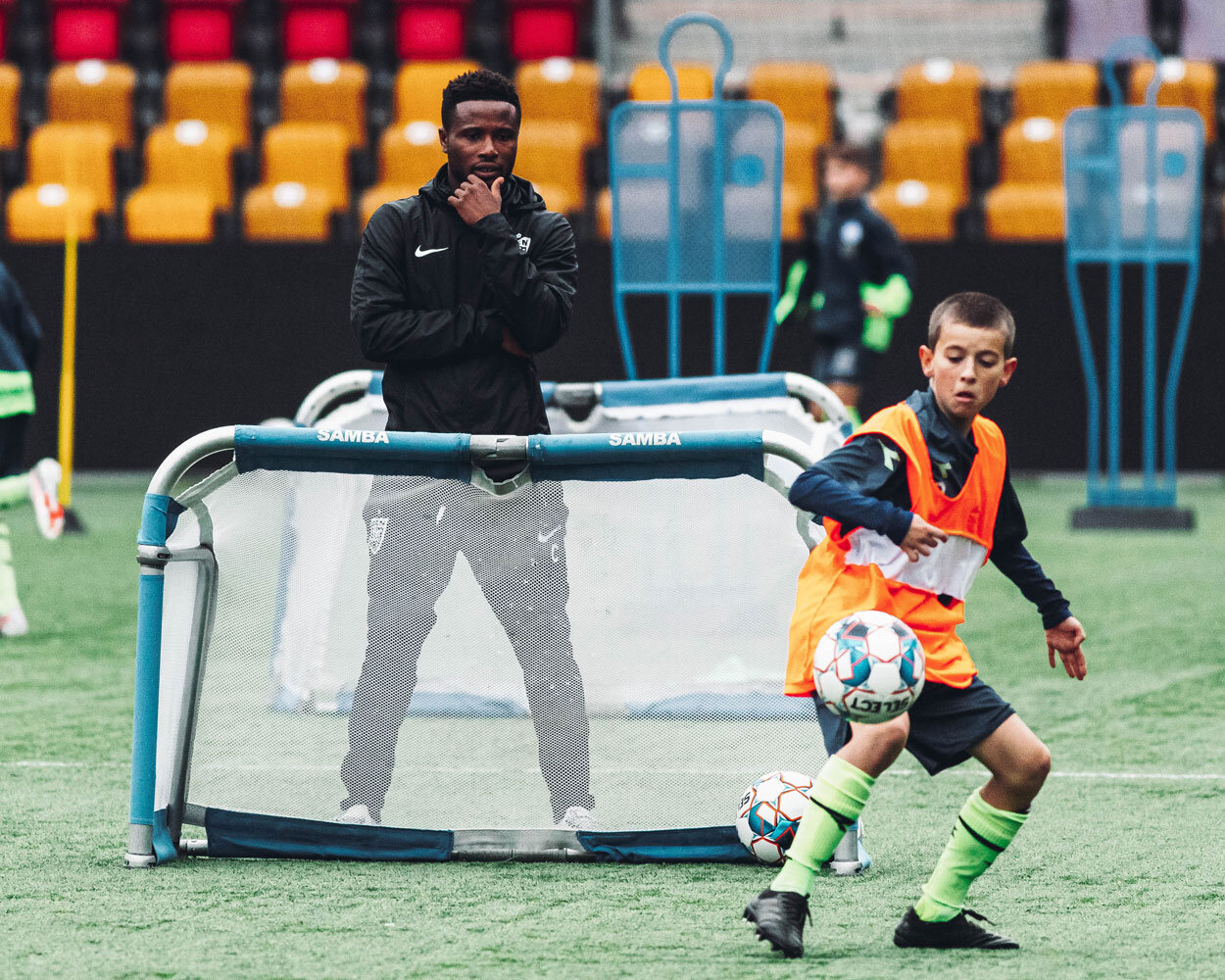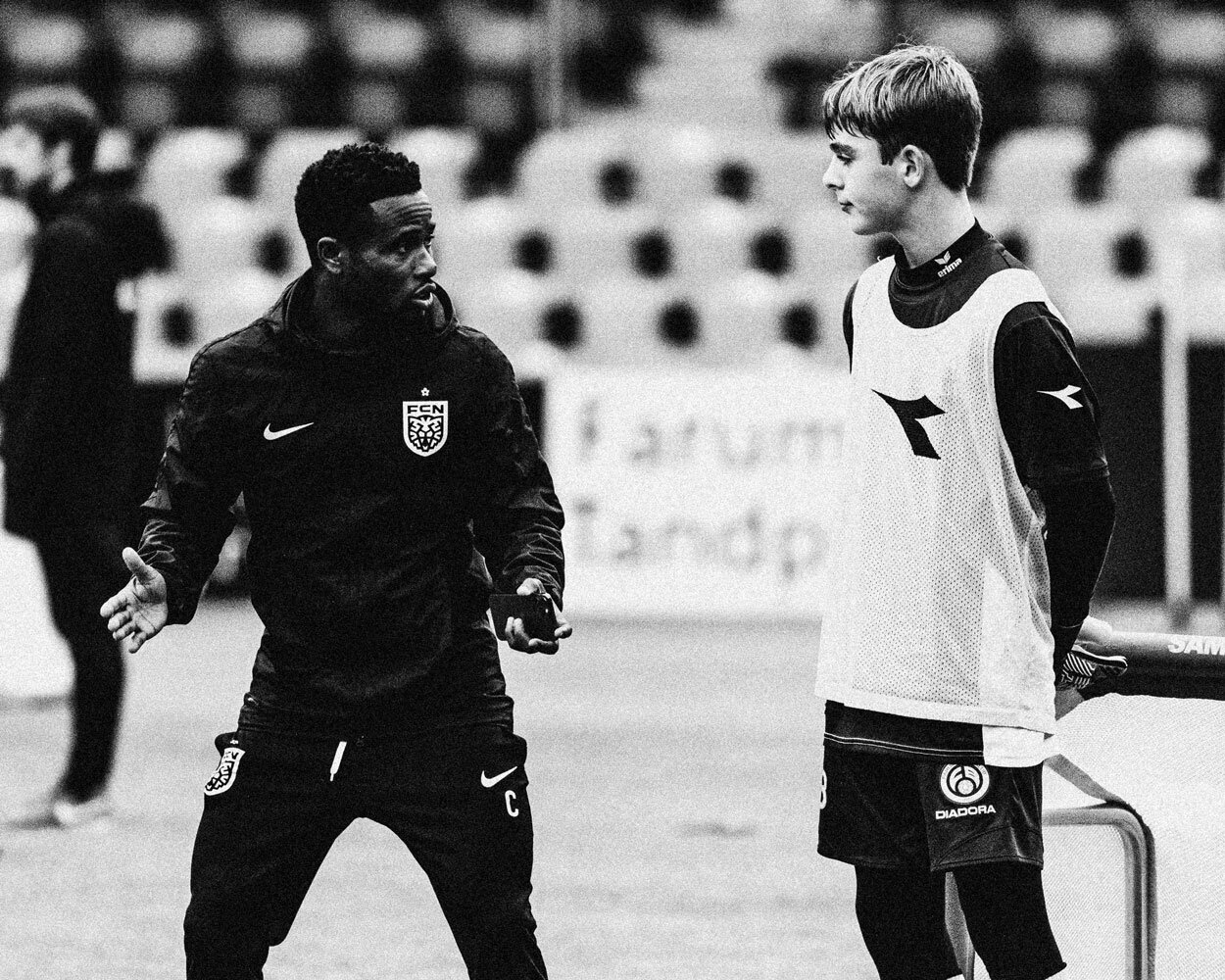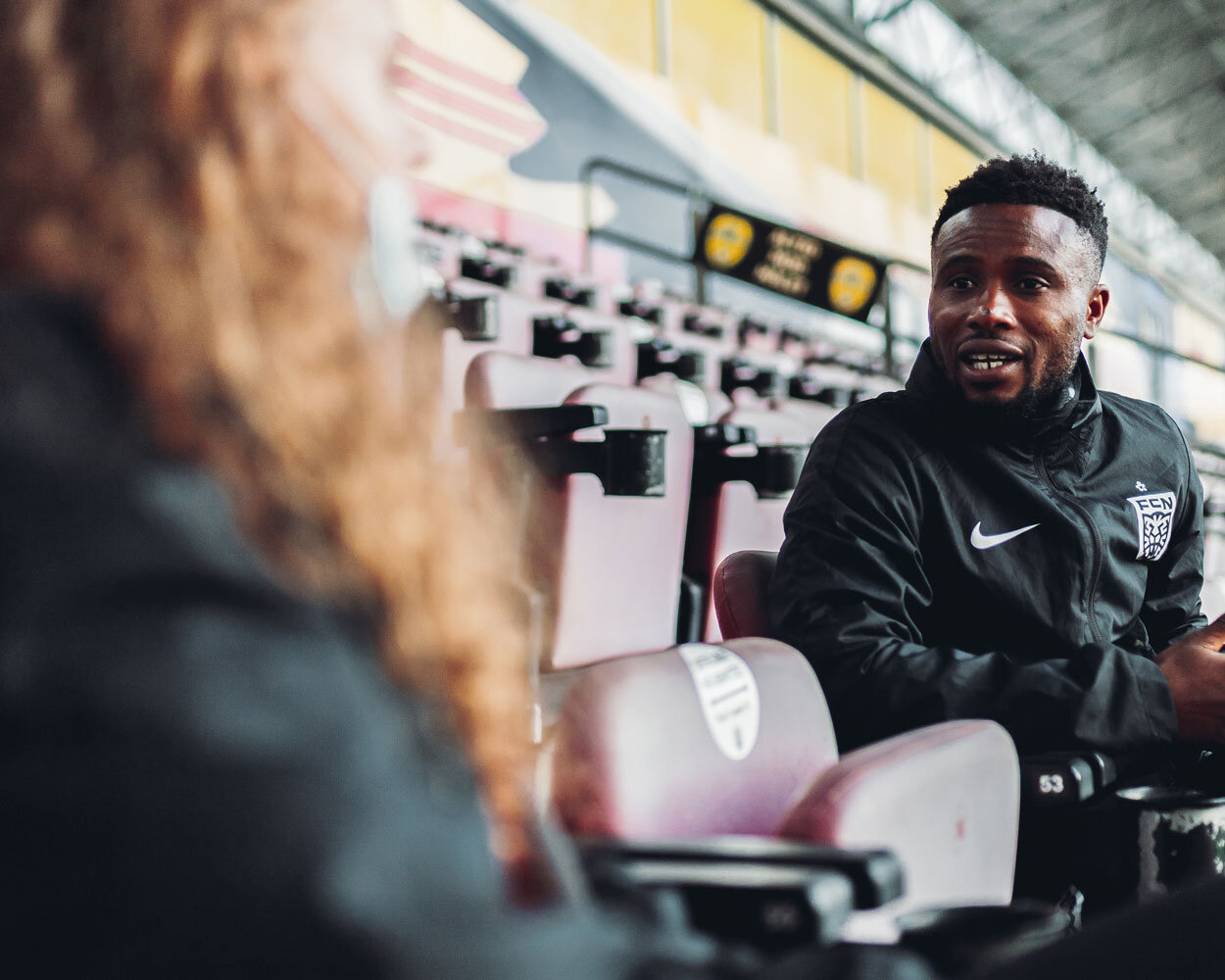James C. Nortey | The fight
Bukom never sleeps.
There is always something going on, and the fishing and fighting never stop. There is not another square mile in the world that has produced as many world champion boxers as my hometown. I love it. The culture and the values. They formed me. It’s a center of excellence.
I have attended a school that costs $55,000 a year and is ranked as one of the best in the world (so I know one interpretation of world class) but nowhere gives you the tools to live life fully and deeply like Bukom. I love it so much it keeps me awake at night thinking of its depth and complexity but also its potential.
Thinking about the values and potential of Bukom stands the hairs up on my arm and fills my eyes with tears. I think about it all the time.
I’m 29 now and I have power in my hands and in my voice because of Bukom. The first time I found power in my hands was when I punched another kid in the face but now the power in my hands lies in my ability to build and in my voice to inspire. I’ve met people from all over the world on my broad journey, but I feel my upbringing has given me values and character to the highest of standards.
I lived a transient life in Accra as a kid. Moving between Osu, Labadi, Manplobi Agege, and Bukom but the area that had the biggest influence on me was Bukom.
It is one of the oldest fishing areas in West Africa.
My father introduced me to the town. He is a fisherman, so he and I spent a lot of time at the shores of Jamestown also known as Bukom.
The smell.
In Bukom, there are all different types of smell in the air, but the one smell that is unavoidable is the smell of fish.
Just fish.
Fish are always being court, fried, grilled, and boiled in Jamestown. When looking closely, you will see fish bones and shells all over the ground.
The houses are very close to each other. This is one of the several strengths of the town. Everyone is connected to each other. We have our problems like everywhere else, but we are deeply interconnected and loyal.
But as I said: Bukom never sleeps.
And as a kid, you have to be on your toes all the time. If you let your guard down, people will take advantage of you. If you have food, your friends will come for it. If you have a football, your friends will come for it. If you have cold water, your friends will come for it.
“When you are born, you learn to fight before you can walk.”
So, if you don’t want to share, it’s fine, but then you have to fight to keep your shit. It sounds crazy, isn’t it? You have to fight to keep things that belong to you.
I’m not naive, it's not perfect there. I have to be honest and say that I wouldn’t want my son to grow up as I did but I wouldn’t change a thing about my upbringing and the lessons I learned. It's given me the power to impact people on 3 continents and dream BIG for my future and the impact I’m capable of.
Boxing and Street Fighting are significant in Bukom. It is known as the spiritual home of African boxing and we have produced many world champions. Boxing connects all members of the town together. When you are born, you learn to fight before you can walk. And while I was there, I became a part of this fighting culture.
It’s impossible to avoid it.
When I was 7 years old, I had my first fight. I remember it so clearly. People gathered around us to bet on the winner.
I do not recall where I was coming from, but I was hungry, frustrated, and just wanted to hurry to get home.
On my way home, a boy about the same age as I threw insults my way. I can’t remember the words that were exchanged after, but before I realized we were circled by a crowd of people.
They shouted as soon as I swung my arm.
“Punch him harder!”
“Yes, Yes, Punch him”
“Beat him”
Slowly people came closer and closer. At the end, there were about 100 spectators.
Because of this fighting culture, every child in Bukom has this thing... You can sense it. It’s like you cannot touch anyone and go free.
They just keep on going. I got into hundreds of fights after that. I had a pretty good record, but I didn’t go undefeated.
From this experience, today I know, how to stand up for what’s mine, but more importantly it’s given me the skills to stand up for what’s right. I cannot be intimidated into not standing up for what’s right. I have deep courage. I learned it on Bukom streets protecting my food. Today I teach many kids and young adults to identify what’s right (their purpose) and to fight for it. Bukom gave me that. I’m unbreakable and I’m passing the courage on as best as I can.
“I saw my two little sisters crying on the floor. This was a turning point in my life.”
Let me tell you about my childhood
My family at the time consisted of myself, my two little sisters and my parents.
After my father introduced me to the town, he went fishing one day and he never came back. 15 years passed before we saw each other again.
So, we are developing our relationship again, I love him and he’s one of my two fathers along with an American man called Dan.
With my father being out of the picture, my mom had to take care of us. She tried very hard but it wasn’t long until she started having some heart problems.
When I realized how sick she was, I looked around to see how I can contribute. I was 8 years old at the time.
We lived in a family compound house outside of Bokum. The house was made of grey cement, without any paint.
One day I came home and saw my two little sisters sitting on the floor crying. This was a turning point in my life. We didn’t exchange words, but I knew exactly how they felt.
I rushed out of the room and thought: “I’m not coming home until I have money or food for them.”
Do you know what I did that day?
I got into a fight and earned 5 Ghanaian cedis. And then......
I lived about 10 minutes away from a beach where all the tourists hang out. I walked to the tourists with my shirt over the shoulder. I waited with my small, black bag for the leftovers. Sometimes, I’d stood there for hours waiting for them to finish eating.
The moment they finished, I ran over to them.
“Are you finished?”
“Can I have the rest?”
I wasn’t the only boy that did that. There were hundreds of us. They called us the “Kobɔlɔ boys”.
No good kids.
At the end of the day, the bag was filled with leftovers from tourists. I brought it home, my mom reheated on a frying pan and shared it between me and my two siblings. I saw how embarrassing it was for my mother, but there wasn’t any other choice.
The second thing I did was selling things on the corner of the street. I sold pure-water, Coca Cola, Pepsi and homemade bracelets with the Ghanaian flag.
As a result, I know how to take care of the people I love, my upbringing taught me this. I often look at the world today and think people don’t do it enough. I don’t think there is anything more beautiful than taking care of those important to you. I learned “the how to do it” in a tough way but now my friends, family and students know that if I’m there for them there is no way I will let them down. Now I can teach my students how to do the same for their teammates and family.
At some point, I heard that Right to Dream would arrange a tryout in my city. But you needed to be a part of an organized club in Ghana to participate.
And I wasn’t playing in a club at that point.
But I showed up anyway. Together with my friend who was part of an organized team. The people from Right to Dream said I couldn’t join.
I was sad, and thought “tsiii chalie… this was my opportunity”
On the way out I heard that they needed a goalkeeper. No one wanted to be a goalkeeper. So I volunteered
“I’m a goalkeeper!”
The words flew out of my mouth.
“At that point I had to use what I had learned during my childhood.“
I knew what I wanted. I wanted to be a part of the Right to Dream. And I didn’t care how. So even though I wasn’t a natural goalkeeper, I played as one.
But my team was too good, so I didn’t get the chance to showcase what I could do. Therefore, I wasn’t picked for the final tryout.
But my friend was picked.
So, I asked him: “Can I go with you for the tryout?”
Obviously, he said no, because he feared that he would lose his spot, if he brought me with him. But he didn't have enough money for the transportation to the final tryout, so I offered to pay for the bus ticket.
“Okay then, but when we get there, pretend you don't know me. Just walk away.”
I was very, very nervous, off course. On the bus I prayed in my head that I would get the opportunity. I didn’t make any sound all the way, because I was thinking:
“How should I answer, when they ask me who I am?”
I just hoped that they would say yes.
I started clenching my hands.
About 2 hours later, we arrived at the bus station near the Right to Dream. As soon as we walked out of the bus, my friend ran ahead.
In front of the que a man was standing with a book. He looked for our names on the list.
And I knew that my name wasn’t there. So, I got even more nervous and started cracking my knuckles, which reminded me of the feelings and reactions I would have before a fight in Bukom.
When it was my turn, he asked: “Who are you?”
“James C. Nortey”,
And then he asked, what position I was playing.
“Goalkeeper”
He asked me if I was the goalkeeper from up north, and I said yes.
But that was not me. I lived in the south.
Right to Dream had selected a goalkeeper, who lived 12 hours away to the North, but I guess it was too long for him to travel. So, the boy didn’t show up. This was my opportunity, so I answered that it was me.
And so, he erased the name and wrote mine.
I still think about that boy today, for the sake of a $5 bus ticket did he miss the chance to realize his dreams? It’s not fair and with the power I have to build and inspire, I want to fight for the next 10 year old who’s missing his chance to realize his potential.
Every few days I saw someone travel home, and at last my friend did as well. Before I knew it, I had become one of the 16 boys who are officially part of the RTD.
I was now a part of the Right to Dream.
Unfortunately, I wasn’t the number 1 goalkeeper, so I sat on the bench most weekends when we played matches
I thought: “How can I make myself more valuable?”
I did not want to be the next boy going home.
I did the laundry, I did the dishes, I cooked and served the food during the weekends as the kitchen staff were off. So, while I learned to be a good goalkeeper, I also had the opportunity to improve in other areas.
After one year I became the starting goalkeeper.
A few years later Tom Vernon, the owner of Right to Dream, told me a story about my admission to the academy. A guy from my area called Shamo told him that I was what he described as ‘a talented guy’. What he meant by ‘a talented’ was that I was good at many things. Later Tom admitted that he knew I had more to offer because of the recommendation of Shamo.
It wasn’t just that I had helped out around the academy, although I’m sure it helped, it was that someone from my community had taken the time to drive 2 hours just to tell Tom he saw me as a special person. My community behaves this way. As part of the character program, I teach this.
It’s not about charity, helping out others. It’s about unlocking each other’s potential. No one can do it alone. This is part of my culture; in South Africa they call it: Ubuntu.
“I am, because you are”
After 3 years at Right to Dream I was told I had done well enough in school and on the pitch to study abroad. I was told that I should get ready and that I have been granted a scholarship to the Hotchkiss School in Connecticut, USA.
What?
I was not the best player. I was quite good in school, but not the best. Maybe they looked at all the things I did off the pitch, maybe they saw more talent in me than I could see in myself.
I arrived at Hotchkiss, and right away I knew that it was going to be a challenge for me.
My English wasn’t that good. And I felt everyone spoke very fast. I didn't understand half of the things being said. Also, I did not like the food, and I did not have any friends.
I had to use what I had learned during my childhood.
I had to fight.
During my time there I started dancing ballet. I’m pretty sure I’m the first Bukom boy to dance ballet. It turned out I was really good, so good I was offered the chance to dance in Italy. It seems Shamo was right when he said I was ‘a talented guy’.
How did he know that? Why are my people not given the chance to find out who they could become? As a character coach I teach my kids to be like Shamo, to see the best in others, to create opportunities, to fight for others.
I decided to not continue with the ballet as I had to choose between that and football. Four years later I had a high school diploma from Hotchkiss and was awarded with athletic scholarship to Marquette University, where I graduated with a degree in Social Justice and Sociology.
“How do you show your parents that you appreciate them?”
During my time at the academy in Ghana we had Life School. This concept is now changed to Character Development. I remember I was very interested in that.
Right after Right to Dream bought FC Nordsjælland, Tom and I connected. He wanted to implement the values of the character development program from Right to Dream at FCN.
That’s when it clicked. That’s the perfect job for me. So along with my experience, Social Welfare & Justice and Sociology degree, I decided to take 5 courses on positive psychology at the University of Pennsylvania to help prepare for this role.
This is how I became a part of the Character Development Program at FCN.
Many people ask: What is Character Development actually? But it is difficult to answer in one sentence, because it’s so many things.
Character development for us is creating a platform where our boys and girls can first rediscover themselves in the simplest way. You know… They have to understand their own values and the things that drives them. Only then can they play a bigger role in society.
It is my belief that when you understand what drives you, stay true to your values, believe in this concept of “strength in number”, and a positive attitude towards most situations, there is nothing you won’t be able to overcome.
But these can be hard concepts for some of our younger teams.
So, we start slow.
Let me give you an example.
We were on a topic of gratitude with the U13 boys’ team. So, I gave them a task where they have to show gratitude towards their parents in their own way.
Few weeks passed, then I received a couple of phone calls from parents, telling me that their kid did the dishes or laundry last night.
And that’s where it all starts.
Football is only a small part of their lives. One day it will be gone.
These values and character traits are things that will never leave them.
I hope for all football organizations to have a character development program.
We are a product of where we come from.
But the circumstances that you are in does not change anything.
You can always find a way to happiness.
As long as you fight for it.
James C. Nortey




